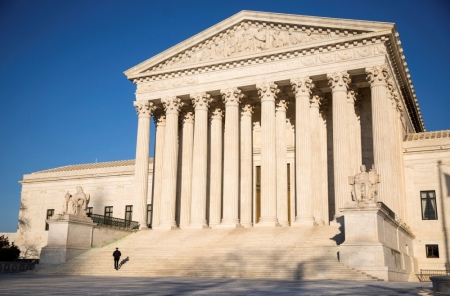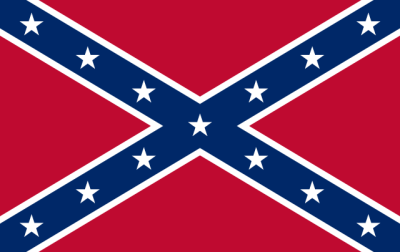Liberals, Pro-Lifers Join Forces to Defend Confederate Tags Before Supreme Court

Liberal and pro-life groups have joined forces to argue for of a Southern heritage group's right to have a specialty license plate issued that features the Confederate battle flag.
The U.S. Supreme Court heard arguments Monday from the Texas chapter of the Sons of Confederate Veterans, which had a requested specialty license plate including the Stars and Bars rejected by the Texas Department of Motor Vehicles.

For its part, SCV has garnered a diverse coalition of support, including the American Civil Liberties Union, the Becket Fund for Religious Liberty, the Cato Institute, and Choose Life Wisconsin, Inc.
In their amicus brief, the ACLU argued that while they may sympathize with the beliefs behind the DMV Board's decision, it was still a violation of the First Amendment.
"Understandable as the DMVB's decision may have been, there is no question that the animosity towards SCV's message constitutes viewpoint discrimination," argued the ACLU.
"However reasonable this distaste for a symbol of racism, the Constitution does not permit the State to discriminate against messages in a forum it has created for private speech."
Choose Life Wisconsin, Inc., which has had its own struggles getting the "Choose Life" license plate approved in their state, filed an amicus brief likewise arguing that a license plate constitutes private speech.
"By creating the specialty license plate scheme and allowing private groups to craft their own design and
message, Texas has intentionally opened a venue for private speech," argued Choose Life.
"Judged by the legal standards applicable to designated public fora, the State's denial of Respondents' application for a specialty plate constituted impermissible viewpoint discrimination."
During the arguments, the justices were unclear regarding whether or not Texas had the right to reject the SCV license plate, according to the Associated Press.
"In a dispute over a proposed Confederate battle flag license plate, the Supreme Court struggled Monday to balance worries about government censorship and concerns that offensive messages could, at worst, incite violence," reported the AP.
"The justices seemed uncomfortable with arguments advanced by both sides — the state in defense of its actions, and the Sons of Confederate Veterans in their appeal for the symbol."
However, at least one of the Court's liberal justices, Stephen Breyer, sounded sympathic to SCV's argument that the plates are not government speech, but represent a public forum where viewpoint discrimination should not be allowed.
"This isn't government speech in common English. It is the speech of the person who wants to put the message on the plate," he said.
In 2009, the Texas SCV submitted a request for a specialty license plate that would feature the organization's name and logo, the latter of which included a Confederate battle flag.
Texas offers well over 400 different specialty license plates, creating an estimated $17.6 million worth of business last year alone.
However before a design can be offered, it must be approved by a vote from the Board of the state's Department of Motor Vehicles.
After a public outcry, the Board voted unanimously to reject the SCV plate. In response, the heritage group filed a lawsuit accusing them of viewpoint discrimination.
While a district court ruled in favor of the Texas DMV, in July of last year the Fifth Circuit Court of Appeals reversed the lower court ruling.
"The district court rejected Texas SCV's arguments and found that the Board had made a reasonable, content-based regulation of private speech," concluded the Fifth Circuit.
"We disagree, and because the Board engaged in impermissible viewpoint discrimination, we reverse."
Last August, Texas sent an appeal to the U.S. Supreme Court, arguing in part that the Fifth Circuit decision "will have untenable consequences."
"The notion that the Constitution requires States to maintain viewpoint neutrality when deciding whether to issue specialty license plates is unworkable and leads to absurdities," read the appeal.
"Texas and other States issue 'Fight Terrorism' license plates; a ban on viewpoint discrimination would require these States to offer specialty plates with pro-terrorism messages."





















